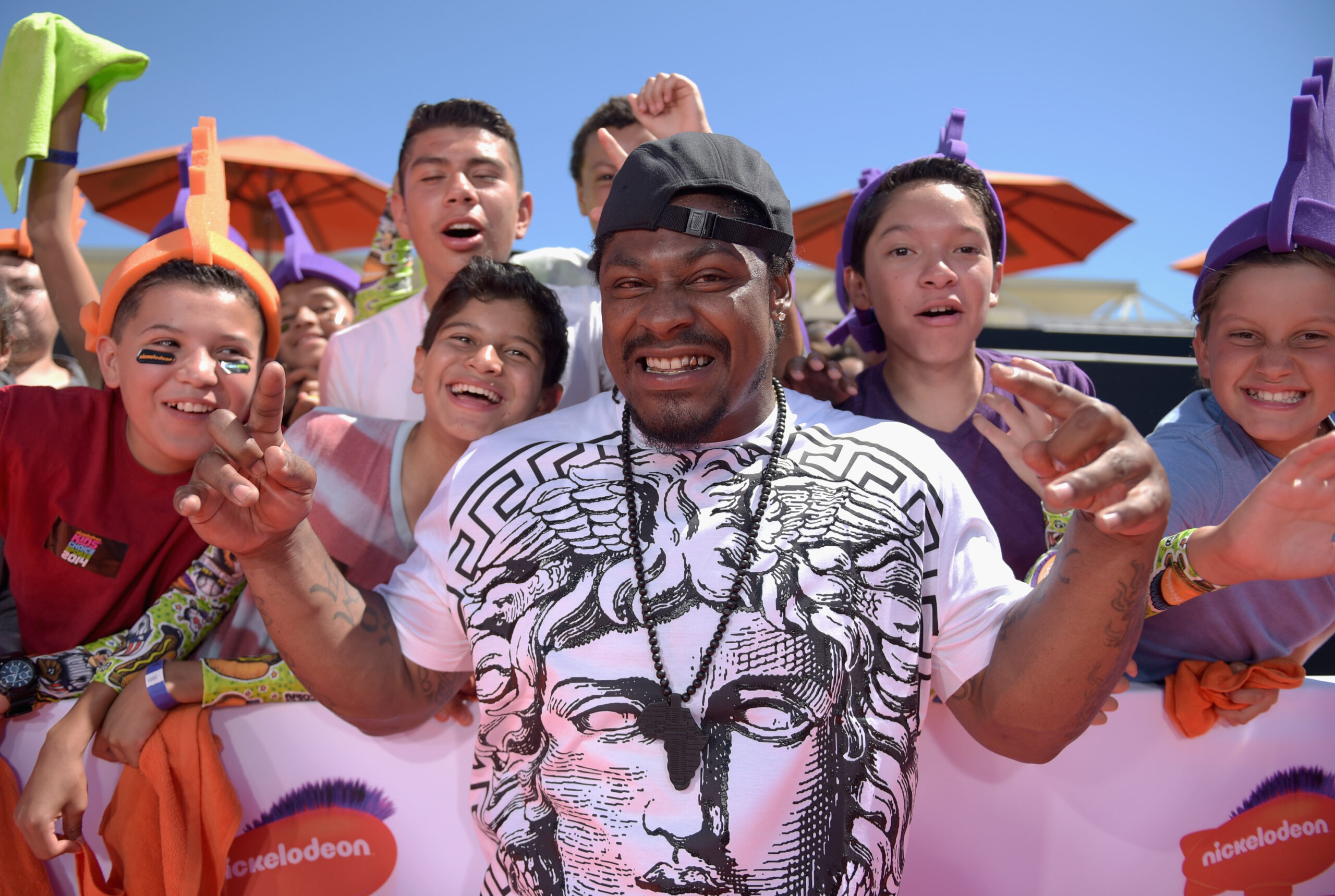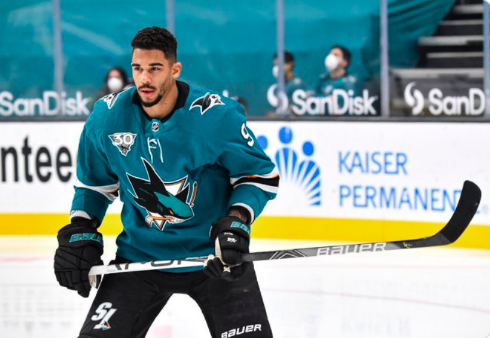(Main image photo credit: Hockey Nova Scotia)
Val James, the first American born African-American to play in the NHL when he suited up for the Buffalo Sabres during the 1981-1982 season, once had irate fans in Boston accost the team bus by saying, Bring out the nigger!
James, the Buffalo Sabres enforcer, wanted to do what he usually did when racial slurs were hurled his way. But Sabres coach Scotty Bowman told him to stay put. James was in tears. He had to sit there and take it. Those were one of the experiences that led James to not watch an NHL game for 28 years after he retired.
I was very upset, said James. I was an American player, playing in an American city. I was invited to games, Stanley Cup games and I would say no because I just couldnt do it. I was still angry. It was my choice to get out of the loop.
During James career, fans taunted him in the stands wearing Ku Klux Klan hoods. A $2,500 bounty was once put on his head by the booster club of an opposing team.
They thought that hockey was only exclusive to white people, James said. Looking back, I wouldnt change a thing. Someone had to pioneer through this.
A few months ago we looked at the infusion of culture in the NHL and we demonstrated that some Black people do love, and play, hockey. Cecil Harris, a reporter who wrote for the Hockey News and Sporting News, wrote a book discussing this fact in 2003 called Breaking the Ice: The Black Experience in Professional Hockey. As Harris heard the stories told by pioneers like James, Willie ORee, a Canadian who was the first Black player ever to play in the NHL, and Mike Marson, who played for the Washington Capitals and the Los Angeles Kings from 1974 to 1981, of the racial slurs and taunts from fans and opposing players, he couldnt help but be inspired by their stories.
My reaction was a more profound respect for the men who endured such racism daily to play the game they love, said Harris. Each black player, I found, has had to wage a personal battle for acceptance and respect. But to every black man determined to make a way in professional hockey, self-respect mattered more.
The stories of overt and covert racial vitriol toward Black hockey players in Canada, or in America, werent exclusive to those who were fortunate to play in the National Hockey League. From youth hockey to the college game, many went through very similar struggles.
Growing up in Ecorse, Michigan, the winter months were hockey season for kids my age, said Derrick Underwood. My first year, I could barely stand straight up in those hockey skates. It took two years to build up my ankles to stand and skate normally. It took the game of hockey for me to learn the ugly terms Nigger and Black Bastard. Those nasty, foul words didnt come from my fellow eight and nine-year-old hockey mates. Those words rained down from the stands. It was the parents and friends of the kids I was playing with.
Even though Underwood doesnt play the game as much as he once did, he says that he eventually saw more and more Black people on the ice.
As the years went by, I became a very good hockey player, Underwood continued. My classmates and friends thought it was cool that I was playing hockey. I got very little blowback from my peers, or others in the black community. I played the game up until I entered junior high school. By then, there were several more Black kids my age playing hockey.
Detroit native Tarasai Karega learned to love hockey by watching the 1992 film, The Mighty Ducks. The 2005 Michigan Ms. Hockey award winner went on to win a Division III national championship at Amherst College in Massachusetts. She says that the racism she encountered was more overt.
When teammates stare at you when you’re open and choose to pass to a covered teammate, causing a turnover, instead of passing to you, that gets pretty annoying, said Karega. I used to get really irritated when people stereotyped me. I felt that was a double standard at times. There were many teammates who used offensive language, during games, directed at our coaching staff. I once said an inappropriate word outside of the rink after a game and was suspended for a game. Many times I felt like I was combating the opposing team and my own team.
Before taking a job in the Orlando Magics front office, Karega was the coordinator of hockey operations for the Ed Snider Youth Hockey Foundation, named after the man who founded the Philadelphia Flyers franchise.
There are so many opportunities that we need to expose our children to, Karega said. I wanted my kids to see that yes, I was a great athlete, but I can also be great in the business of sport, and it was my goal to encourage them to have many interests and not pigeon-hole themselves into a stereotype of black people can only be great athletes, or girls can only be nurses and executive assistants.
Bob Dawson was the first Black man to play in Canadas Atlantic Intercollegiate Hockey League. He also made history when he, Percy Paris and Darrell Maxwell became the first all-Black line at St. Marys University in Halifax, Nova Scotia.
Dawson believes that most Black hockey players have their reasons why they may not discuss their experiences.
[There is a] strong desire to leave the past in the past as theyve moved on with their lives, said Dawson. The emotional stress of recounting the verbal and physical abuse they endured while playing in the NHL and the lack of support from the league in addressing the issue of racism in a timely manner, along with the fear of affecting or damaging their opportunities of securing positions in hockey as coaches, TV color commentators or analysts.
For members of the hockey establishment to discuss the treatment of former black hockey players, especially now with various initiatives to bring more blacks into hockey, would cause them undue stress and publicity that would further sully the NHLs image as a league and sports institution, Dawson continued. This could, among other things, have a negative impact on the NHLs efforts to grow the fan base among Blacks, particularly in the U.S. which in turn could potentially affect the leagues bottom-line.
Everett Fitzhugh, the Director of Public Relations and Broadcasting for the East Coast Hockey Leagues Cincinnati Cyclones, wanted to get involved in broadcasting while in college. The Detroit native got his start by calling over 120 hockey games for the Bowling Green State University Falcons.
Play-by-play has always been my passion, but I wasn’t getting jobs back then because I didn’t have the writing and public relations experience, said Fitzhugh.
Before Fitzhugh took the job with the Cyclones, he was the Manager of Communications and Director of Social Media with the USHL in Chicago.
It’s been a dream of mine to work in professional hockey ever since I started broadcasting, said Fitzhugh. Ultimately I want to get to the NHL, and this is the next step in that process.
History has never been too kind to those who’ve been isolated by their ethnic background.
The game of hockey, by nature, tends to thrive in such isolation. Men and women such as James, Karega, Dawson, and Fitzhugh know this all too well. However, the isolation they endured appears to be worth the risk.






